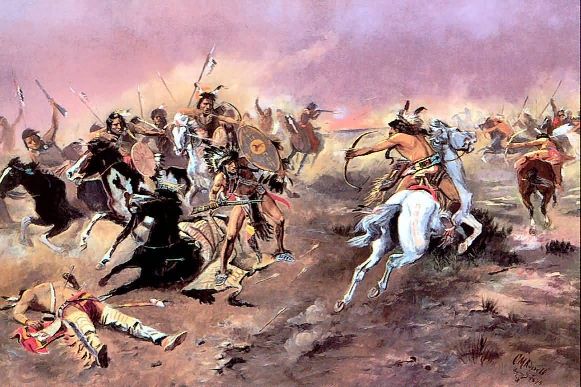Advantage in the fog of war

Zach rolls for initiative.
I think that Ben Robbins at Ars Ludi is right about initiative. I wrote earlier that one of the reasons that Gods & Monsters calls for an advantage roll every round is that we can’t remember from round to round what our advantage numbers are. I’ve been tinkering with it for a while; I added the announcement phase a while back to make advantage more useful. It worked, but not enough. While it adds a tactical level to advantage that it didn’t have before, it also adds a complexity that really ends up acting against group effort. During our last game we even ended up forgetting advantage rolls during the same round we rolled them.
Further, the more I think about it, the more I think initiative is counter-productive. An initiative-style advantage system puts an orderly structure on a round’s worth of combat that goes against the rest of the game’s rules. Actions in a round don’t happen at precise intervals.
I wish Ben had written this a week ago, because with vacation season starting I won’t get to try it out until October. However, in our next game I’m going to suggest a much simpler advantage system: none whatsoever.
In conflict, everyone chooses what they are going to do, and they do it. Even if they are disabled during the round. Combat is messy, and the fog of war cures all ills. Characters can attack anyone who has come within their movement in feet. First the Adventure Guide decides what the opponents are going to do, then the players decide what their characters are going to do, and then everyone does it.

Hold on. What was your initiative again?
This gets rid of all the crap about changing minds, announcements, and keeping track of advantage rolls.
There will be two major changes that result from this change:
First, a combatant can no longer avoid damage by gaining the advantage and disabling their opponent. Everyone does what they’re going to do. That one attack might really have been three attacks, with one opportunity (if I really were being strict, I’d rename actions to opportunities): a lunge, a damaging riposte, and a killing blow. In the fog of war, you don’t know. But you can make it up when you describe it.
Sorcerors no longer have to worry about spell disruption. We rarely remembered to use those rules anyway. Spells have a casting time of 1 round minimum, with a possible quick notation for slow fall or similar spells. If someone wants to disrupt a spell, they’ll have to do what they would do for any complex action: make a called shot to affect it.
An attacker can make a called shot against a complex action, such as casting a spell that requires gestures or ingredients, calling a spirit that requires gestures or a focus, playing an instrument, or reloading a crossbow. If successful, the target must make an Evasion roll or the action is delayed for one action.
What about battle knowledge? If a character wants to wait until one of their opponents betrays their actions, let the player do so. If the opponent wants to do the same thing, you’ve got a charisma contest, which warriors can apply combat pool points to.
- Initiative: the Silent Killer
- “By precisely enforcing when each player goes, you set the stage for each player to make decisions in isolation. Each player is closer to being in a solo game with the GM rather than playing with the other players (for extra credit, add up the amount of time each player talks to the GM rather than to other players).”
More initiative
- Surprise and initiative in Advanced Dungeons & Dragons
- For the North Texas Role-Playing Game Convention’s tenth anniversary, I ran an AD&D game; the hardest part was re-figuring out how initiative and surprise work.
More rule previews
- Training points for abilities, skills, and weapons
- Advancing in skills, weapon familiarities, and ability scores might be combined and simplified using “training points”.
- Fields of study
- Gods & Monsters currently has a very flat skill system. Every skill is at the same level, whether it is building a fire, building a bridge, or performing surgery. Besides being somewhat unbalanced, that level of fine detail goes against the rest of the Gods & Monsters system.
- Get your mojo rising
- Mojo points allow players to allocate their characters’ once-random advancements among fields, abilities, and research as they see fit.
- Crosstraining-style fields and skills
- One of the problems with making skills in a Dumasian, space-operaish game like Gods & Monsters is that characters don’t necessarily need them. Skills in such a world need to be as big as the characters.
- Weapon Fields, Psychic Fields, and Thief Fields
- In the new fields and skill system, some fields are restricted to specific archetypes. Thieves have access to skills no one else does, for example, as do Monks.
- Three more pages with the topic rule previews, and other related pages
